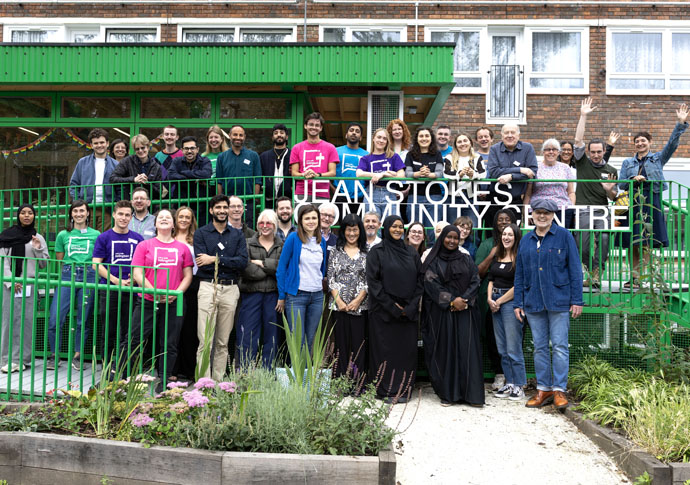Panel seeks eco crisis answers
Bid to make borough more resilient to the likes of flooding and extreme heat
Friday, 16th August 2024 — By Daisy Clague

Members of the Islington Climate Panel
A RANDOMLY selected cohort of Islington residents are helping to make the borough more resilient to the impacts of the climate crisis.
Launched back in February, the Islington Climate Panel is made up of 35 participants who have just wrapped up eight sessions of brainstorming about how to make Islington’s people, streets and infrastructure more resilient to the likes of flooding and extreme heat.
The purpose of the panel was to give a group of people who represent the borough’s diverse population more of a say over how the council responds to the challenge.
One participant was Chas Hines, from Highbury, who applied to be part of the scheme after getting a leaflet through the letterbox.
“I didn’t have a clue what it would be like, but I have to say it was brilliant from the first meeting,” said Ms Hines.
“I felt guilty because we were talking about big problems, but I had a great time and met some great people, and it was really interesting to see that our concerns were quite universal,” she added.
Ms Hines had noticed how heatwaves in London made life harder for friends of hers in small hot flats.
The first few sessions were educational, getting the panellists up to speed on climate science.
“They asked us: ‘If you were in charge of changing things in Islington, what would you do?’” said Ms Hines.
“I think the clue lies in education, and it has to start with kids at school because they can really imagine the things that adults might think are impossible.”
Islington Council are not the first to use community panels to inform their plans for responding to climate change.
Councillor Rowena Champion, Islington’s executive member for Environment, Air Quality, and Transport, said: “With 90 per cent of Londoners saying they’re motivated to help prevent climate change, and 65 per cent saying that climate change affects their day to day decision-making, it is clear that there is real appetite to take action to mitigate the risks it poses. That’s why we’ve been working with residents to turn these concerns into action.”